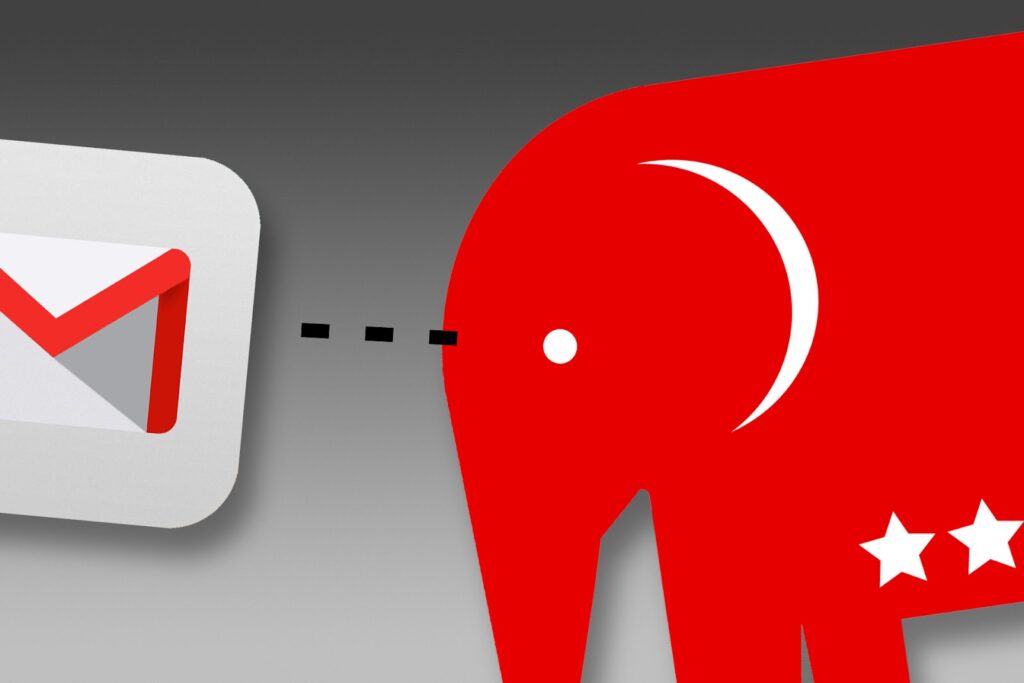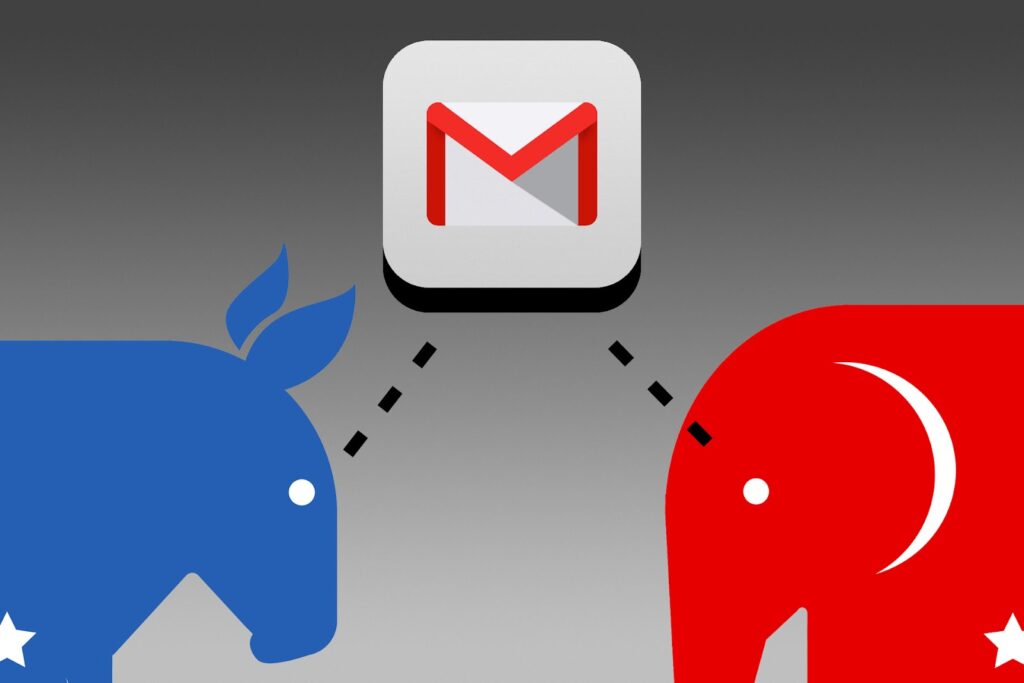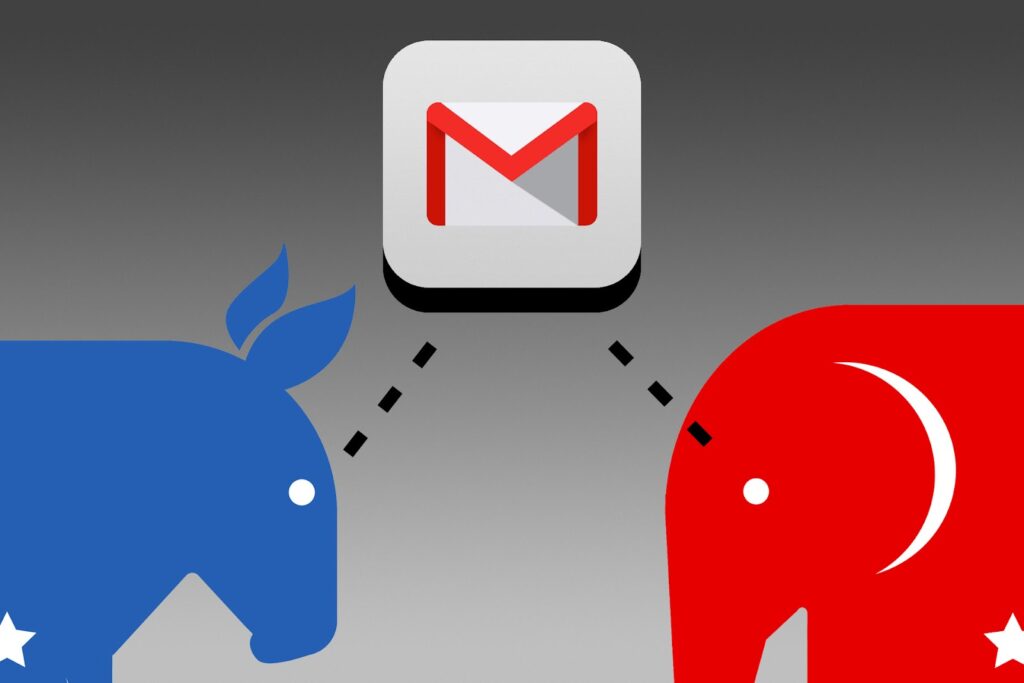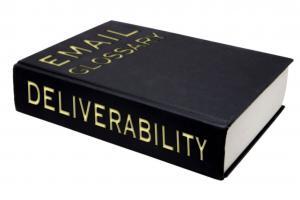political email
Eric Goldman is Associate Dean of Research, Professor of Law and Co-Director, High Tech Law Institute, at Santa Clara University. And he blogs about legal stuff, often stuff relating to the internet and privacy. I find his blog a must read. So he’s a good guy to turn to when you want quality analysis of the RNC’s first round loss in their lawsuit against Google. And here it is, perhaps a bit delayed, but still worth reading.
Mike Masnick from Techdirt’s got a scathing breakdown of how the judge just wasn’t buying what the RNC was selling; derisively detailing their failure to prove Google bias against right-wing political senders. It’s definitely worth a read. He closes with saying that with election season upcoming, maybe that will spur the RNC to appeal the ruling. Who’s he kidding? We know this isn’t the end of it.
Axios, the Washington Post, and others are reporting that the Gmail political email pilot program is coming to an end.Axios buries the lede on this one — putting the important bit (to me) at the very end: “Google’s pilot email program, which saw more than 100 political committees participate, will end January 31, and the company is evaluating next steps.”More from the Washington Post: “The company will let the program sunset at the end of January instead of prolonging it, Google’s lawyers said in a filing on Monday.” The filing is an attempt to get the RNC “unfair spam filtering” lawsuit against Google dismissed. How the shutdown of the pilot program ties to that effort, I am not equipped enough to say at the moment, but I’ll be curious to learn more.
Mike Scarcella, reporting for Reuters: Google has hired law firm Perkins Coie to help defend it against the RNC’s spam filtering lawsuit. “While Perkins long has provided legal services to the Democratic National Committee in matters of political law, and to political candidates, most of the lawyers fielded to defend against the RNC’s claims focus on privacy, security and business litigation.” Read it all here.
Will Easton is an expert email strategist and nonprofit fundraiser, and the webmaster of ethicalemail.org. He was recently laid off and looking for work, so feel free to connect with him on LinkedIn or by email to weaston@igc.org.Today’s topic? The deluge of fundraising spam you’re likely to receive after making a political contribution and handing over your email address.First, let me make it clear that I’ve managed email communities for generally progressive nonprofits, B2C companies & candidates throughout my career, so my focus here is on that side of the aisle. Republican email fundraising is a separate kettle of fish with its own problems, highlighted in this piece from the NY Times focusing on the Trump campaign … as well as a followup article pointing out that elderly donors to both parties are particularly susceptible to unethical tactics, and represent a disproportionate share of refunds requested for donations they don’t
Blake E. Reid, writing for LAWFLARE breaks down the legal merits of the Republic National Committee’s lawsuit against Google over Gmail’s spam filtering. Starting with, “the trouble with the RNC’s pointillistic arguments is that they invoke a bunch of different laws that apply different rules to different kinds of platforms in different contexts.” It’s a good read and I found it full of insight. Check it out here.
What’s up with that Gmail political email pilot program, previously revealed by Axios and discussed by my friends Jennifer Nespola Lantz and Travis Murray (and me, and others)? Strangely enough, according to the Washington Post, Democrats are flocking to it, and Republicans seem to be avoiding it. Was this a bluff that they weren’t expecting Gmail to call? After all, a number of noisy Republicans complained about, and asked for a way through the spam filtering; they were offered such a path, and don’t seem to want to use it. Instead, the Republican National Committee is suing Google.Color me confused.Why do this now? It won’t be decided in time to affect midterm elections. It makes the whole thing seem like bit of a ploy, focused on publicity. And perhaps a bad faith one, given the opportunity the GOP was already offered to be able to bypass Gmail’s spam filters.And who
Today’s guest post comes from my Kickbox colleague, Jennifer Nespola Lantz. Don’t forget to check out her posts over on the Kickbox blog. Take it away, Jen!Yesterday, a colleague shared a link, a much anticipated link, a link that adds clarity to a topic that caused some hair to catch on fire (mine in particular), some ire and anger, much speculation, and little support. That topic: Gmail’s Political Pilot Program or as Gmail has coined it Gmail Verified Sender Program Pilot (some speculate there are reasons for this, but let me learn my lesson and not talk about that just yet).I was hot on the topic when I first read about it and quick to comment judge. I was also quick to jump right into this newly shared link, filled with (what I hoped was) answers to some lingering questions. And what an enjoyable read it was. Not because it was
Over on the Validity blog, my friend Travis Murray has provided an update on the current status of that Gmail pilot program to allow some political senders to in theory be able to bypass some spam filters. Read it and be informed.The whole thing makes me itch. There are just too many apples to give everybody one bite, as I mentioned before.And My colleague Jennifer Nespola Lantz worries that this “is a flat degradation of trust for the end user” and I concur.So…what comes next here? Get ready to start sliding down that slippery slope here, folks.
Jennifer Nespola Lantz’s recent post about Gmail potentially offering political senders a fast pass method to the inbox has gotten me thinking about the spam fight we went through back in the olden times. Before CAN-SPAM, domain reputation and deliverability best practices. There was a time back in those bad old days when the marketing industry mega-group Direct Marketing Association tried to convince the world that opt-out was the best path for email marketing. The arguments as to why this absolutely horseshit plan was supposed to be okay varied; free speech, growth of the economy, support for small businesses, whatever. Everybody should be allowed the chance to hit your inbox at least once, they said; and then you could just tell the sender; each sender, individually, to stop emailing you. They loved touting two things. First was an “opt-out registry” service called e-MPS. Smart netizens knew that allowing this to proceed would















